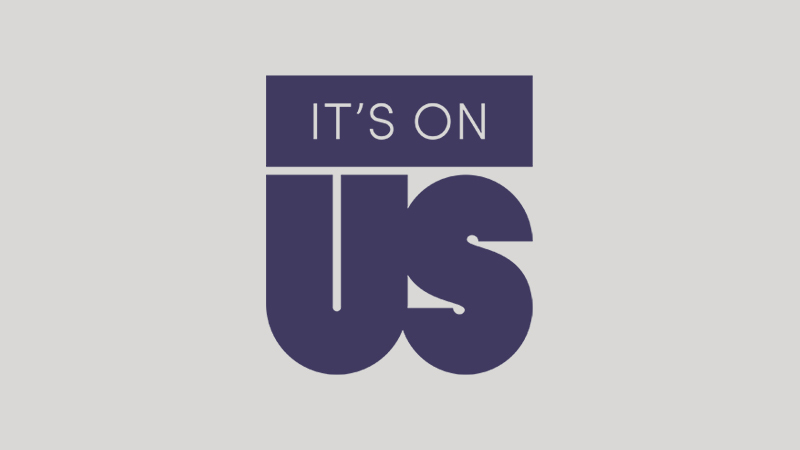
April is Sexual Assault Awareness Month and each week we will walk through the different sections of the It’s On Us campaign. It’s On Us’s mission is to build the movement to combat sexual assault by engaging young men and changing campus culture.
Sexual Assault Awareness
Sexual Assault Awareness Is… Programs, trainings, or events that provide awareness on the meaning of consent, the prevalence of, and policies related to campus sexual assault.
Sexual assault does not discriminate; it can happen to any person, at any time. Therefore, it is important to work with your community to spread awareness of these crimes and to ensure that all students, faculty, staff, and the surrounding community understand the prevalence of sexual violence.
This section provides basic background on the prevalence of campus sexual assault as well as policies pertaining to what campuses should be doing to combat sexual violence. You will find information on where to find resources on the importance of conducting a campus climate survey and other ways to influence positive change at your school.
As students and their communities become more aware of their campus culture— including who sexual violence affects the most and how to stop it – we will succeed in making colleges and universities environments where all students can safely pursue their education.
What to Know & Where to Go
It is important to be aware of your rights as a student and the policies that exist to protect those rights:
- The Jeanne Clery Disclosure of Campus Security Policy and Campus Crime Statistics Act is a federal statute requiring colleges and universities participating in federal financial aid programs to maintain and disclose campus crime statistics and security information. Learn more about the Jeanne Clery Act here.
- Title IX of the Education Amendments of 1972 is a federal law that prohibits discrimination on the basis of sex in federally funded educational programs and activities. Learn more here.
- Title II of the Americans with Disabilities Act (ADA) requires schools to provide students with any disability (includes depression, PTSD, and many other psychiatric illnesses) with appropriate academic adjustments and support to have an equal opportunity to participate in school. Learn more about survivor rights under Title II here.
- Title VI of the Civil Rights Act of 1964 prohibits discrimination on the basis of race, color, and national origin in programs and activities receiving federal financial assistance. Click here to learn more about how Title VI can protect survivors.
- Campus SaVE Act applies to the Violence Against Women Act (VAWA) amendments to the Clery Act. The SaVE Act ensures transparency, accountability and education, expanding the scope of the Clery Act in terms of reporting, response, and prevention education requirements around rape, acquaintance rape, domestic violence, dating violence, sexual assault, and stalking.
It is important to understand your community as you create policy and programming on campus. Here are some resources on the importance of inclusive programming for sexual assault awareness on campus and ways to implement:
- Read the Campus Climate Survey Validation Study Fact Sheet or Full Report to learn why it is helpful for your college or university to have a campus climate survey
- As you create and advocate for change, here is a resource that may help explain to your school why it is important to always include marginalized communities in the conversation.
For more information on It’s On Us and additional resources, please visit here.

 Resources
Resources
